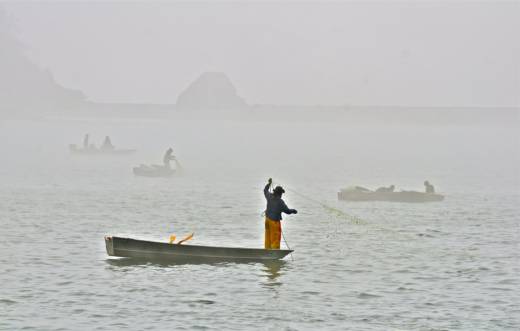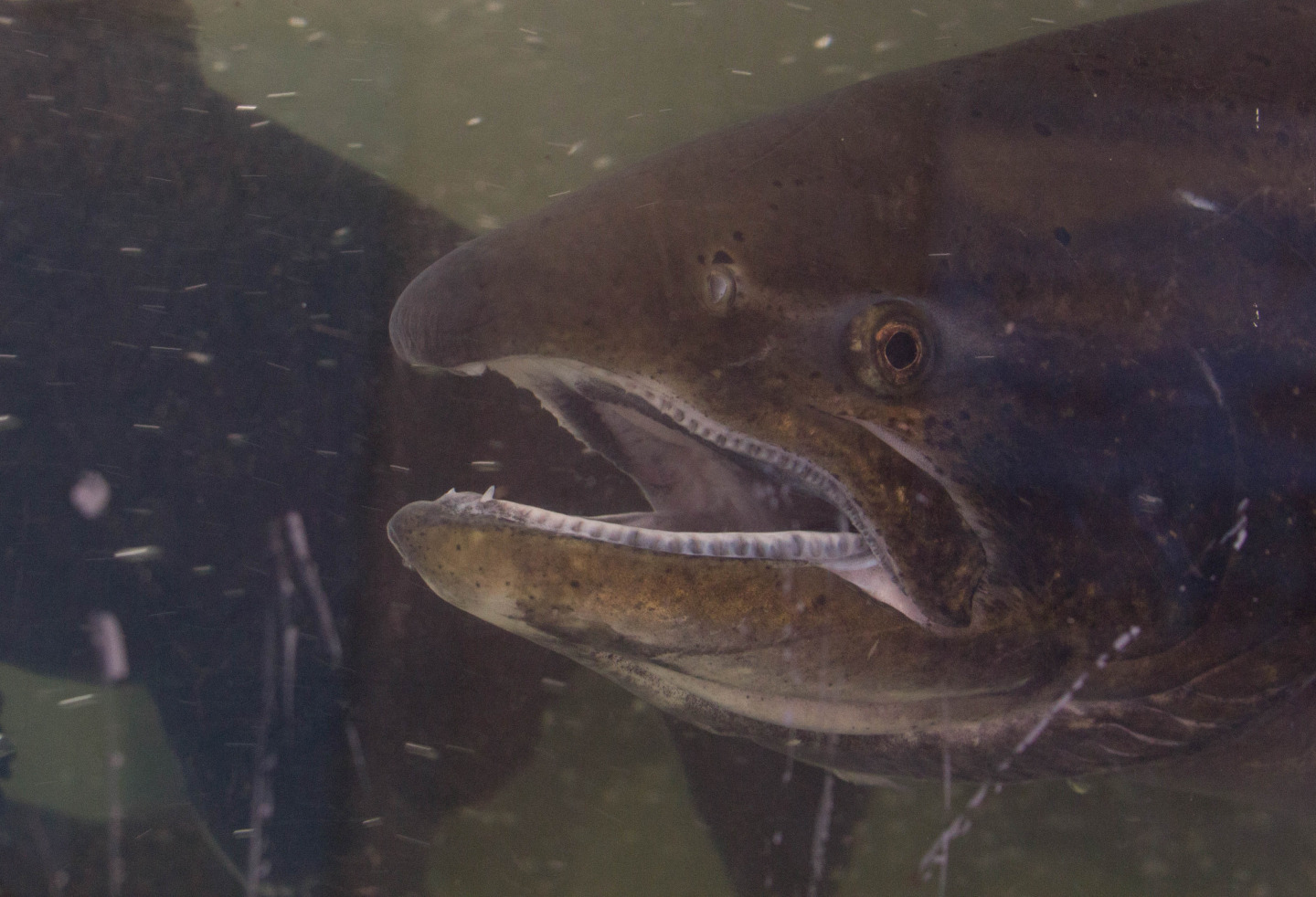Half that take -- just 800 -- would be designated for the thousands of native tribe members along river. Typically, 80 percent of the harvest is allocated to members of the Yurok tribe; 20 percent go to the Hoopa tribe on the Trinity River.
Last year, the 6,100 Yurok received 5,800 salmon.
Yurok lawyer and tribal member Amy Cordalis said this week that fish and fishing culture have long sustained the tribe.
"Even when the fish aren’t running we are prepping our gear, we are talking about fishing, we are eating our canned salmon ... and then when the fish arrive, we all gather down at the Klamath River to be there, to harvest," Cordalis said. "That great sense of gathering around the fish, around the salmon run, will not be there. And for us that means our very social fabric is falling apart."
Those outside the tribes who fish for a living also face a tough season. Commercial salmon fishing in the Klamath Management Zone, along the coast from Mendocino County town of Point Arena into southern Oregon, is likely to be shut down entirely.
Noah Oppenheim, director of the Pacific Coast Federation of Fishermen’s Associations, says the economic impacts will ripple over North Coast ports.
"That means fishermen are going to be selling their boats. That means they’re going to be defaulting on loans,” Oppenheim said. “We need to solve this problem."
Tribes and fishermen are seeking disaster relief from the state and the federal government. And Cordalis says water managers should take fish shortages more seriously right now.
“By using science, by using data, by updating the river’s operating system, we can find a way to make our communities up and down the river sustainable,” she said.
And Oppenheim points to water quality and quantity issues as a key area of focus.
“We know that agencies can’t invent fish but we know agencies are very good at inventing water,” he said.
Some relief -- both natural and judicial -- could aid the fish in the short run. This season's heavy rains will help river conditions, and a judge's decision in February means federal water managers will be required to follow a new regime of releasing flows to aid the Klamath's threatened coho salmon; those measures should benefit chinook as well.
But the biggest change could come in three years.
The owner of four hydroelectric dams on the Klamath has applied to remove them by 2020, which may improve the river’s flow year-round, nurturing future salmon runs. The Federal Energy Regulatory Commission is considering PacifiCorp’s application now.
Fish advocates say they’re hopeful, because that plan is still on track.

